#incentives
Honda Ups Discounts on Ridgeline - a Truck That's Already Having a Better Year
Like most Americans, you probably didn’t emerge from last night’s slumber with thoughts of the Honda Ridgeline on your mind. Few do, though the oft-overlooked unibody Honda pickup remains a fairly consistent niche seller.
For the coming month, Honda wants to provide you, the buyer, with additional reasons to choose its offering over tried-and-true BOF competitors.
Ford Keeps Upping the Cash on Leftover Flexes
Back before we had standards and practices barring tainted food from store shelves, there was a colossal stretch of history when you could buy discounted meat that was well past its best-buy date. The older the cheaper.
These days, those kinds of discounts really only apply to inedible items — like cars. But you don’t have to suffer any of the ramifications of eating thrice-cooked, spoiled meats when you get a car that the manufacturer decides is no longer fit for human consumption.
Better Buy the V8: Chevrolet Updates Incentives on Camaro SS
It’s no secret that Ford routinely cleans up in the muscle- and pickup-related segments, often to the chagrin of General Motors. The Blue Oval routinely outsells GM in both fields. Eager to change a few minds, Chevrolet began offering a $2,500 discount to Mustang owners (or lessees) interested in purchasing a Camaro. That rebate rose to $3,000 last month.
This month, the General is making another offer. As part of its Black Friday Sales Event, Chevy is willing to part with the Camaro at a 12-percent discount below MSRP. The only restraint is that it has to be a V8-powered SS model, making this catch feel like more of a perk — as we wouldn’t mind seeing more of them on the road.
As Nissan and Infiniti Sales Sink Yet Again, Automaker Continues to Shrink Incentives
You have to hand it to Nissan. Despite holding a continually declining share of new-car sales in the U.S., the automaker is sticking to its plan to firm up its financial footing.
That means holding the line on incentives and fleet sales — a practice it once revelled in back when the company pushed volume above all else.
Incentivized 'Stang: Cash Falls Like Leaves on Outgoing 2019 Mustang
It’s hardly unusual for an automaker to boost incentives in the fall, stimulating buyer interest in a bid to clear out current-model-year inventory, but market forces appear to have made Ford extra generous this October.
Starting late last week, the automaker is adding an extra $1,000 off most 2019 Mustangs, with extra financial grease heaped on EcoBoost models. It’s more cash than buyers got last year at this time, but then again, the Mustang isn’t exactly where it would like to be.
Take a Chance on Me? GM Incentivizes Mustang-to-Camaro Conversions
Not happy with sales thus far this year, General Motors wants Ford Mustang owners to know there’ll be cash waiting for them should they wander into a dealer in search of a Chevrolet Camaro.
As 2019 draws to a close, GM’s pony car sits in third place in the niche segment’s sales standings. This, despite a 2019 model year refresh and a greater availability of four-cylinder offerings. Maybe a few grand will compel rival owners to make the switch?
Electric Viability: The Dutch Sure Do Love Tesla's Model 3
Tesla’s Model 3 became the best-selling car in the Netherlands last month, edging out the Volkswagen Polo. If you’re wondering how an electric automobile that goes for the domestic equivalent of $47,300 in Europe outsold VW’s $18,650 hatchback, take a look at the United States. Ford’s F-Series is always at the top of the charts here and, while it can be had for under $30,000, most have sticker prices nearly identical to the aforementioned Model 3.
Tesla also has the advantage of the Netherlands’ eagerness to adopt EVs, which has resulted in some heavy incentivizing. Honestly, if this author could bring himself to be surrounded by the Dutch on a daily basis, he’d be tempted by the parking perks alone.
August Brings Elevated Incentives, Higher Transaction Prices - But Not for Everyone
A flurry of new model additions benefitted many automakers with additional sales and greater revenue last month, and none more so than Fiat Chrysler, which saw its average U.S. transaction price rise 6.2 percent, year over year. Can you guess which segments pulled in the most extra money per vehicle? Bet you can.
At the other end of the yardstick, two foreign automakers basking in the glow of a very healthy sales month saw their average transaction prices fall.
Going Green: America's Most Cash-laden Utility Vehicle Is the Base Ford EcoSport
Lovers of low-rent vehicles bemoaned Ford’s decision to cull its small-car herd, shedding tears at the loss of the Fiesta and Focus, and no doubt choking back a few sobs at the impending loss of the midsize Fusion sedan. Finding a five-passenger vehicle priced below $20,000 is rapidly becoming a thing of the past, they cried.
Indeed, the supply of low-cost cars is shrinking, though Nissan seems to tuned in to the laments of penny-pinching shoppers. Over at Ford, the discontinuation of the Fiesta and Focus means the three-cylinder, front-drive EcoSport S — a subcompact Indian import we’ve, um, mentioned on this website in the past — is the only Blue Oval ride with an MSRP south of $20k, though adding a destination charge pole-vaults it over that threshold.
Before incentives, that is.
Lovers of Front-engined Corvettes Stand to Save Big, but Only If They Spend Big
Who’s talking about the C7 Corvette these days? Precious few, that’s who, as the recent appearance of the mid-engined C8 has sucked all the attention away from the current-generation Chevrolet two-seater.
This situation, paired with the need to clear existing inventory, could be advantageous for buyers of the departing model, assuming you’re ready to shell out nearly six figures for the hottest C7s around.
Tesla Says Free Supercharging Is Back
Tesla has resurrected its plan to provide free, unlimited access to its supercharger stations for the automaker’s customers. While the company frequently rejiggers its product offerings, this one still came out of left field. CEO Elon Musk called the plan unsustainable when the company officially eliminated it in 2018.
However, with the manufacturer seeing increasing sales volume from the Model 3, its premium models are falling by the wayside. Tesla reported 95,200 deliveries in the second quarter, the vast majority being the Model 3. While the company managed to generate $6.3 billion in revenue in the second quarter from those transactions, weaker Q1 volumes took a bite out of its share price and it still lost money through both periods. But it lost a couple hundred million less in Q2 thanks to the uptick in sales.
U.S. Auto Sales Continue to Decline, July Outlook Dim
We’re now in the seventh month of declining automotive sales in the United States. However, global sales haven’t fared any better. China posted its worst-ever monthly decline more than once this year with specific brands claiming as much as 70-percent slump in sales through the first half of 2019. Things are also going badly in Europe and have been for quite some time, with June playing host to some exceedingly bad metrics.
In fact, North America has had it comparatively good since its troubles hadn’t become truly persistent until the start of this year and the monthly dip rate has been been less severe. That does not, however, make the situation in the U.S. sunshine and roses.
Make It Worth My While: EV Stats Point to an Ongoing Thirst for Subsidies
If you’re stinking rich, few things stand in the way of any purchase. For plebs consumers of lesser means, pocketbook considerations factor much more heavily into all purchases. You author, by the way, feels pretty good about stockpiling discount meat in his freezer.
When it comes to electric vehicles, limited range and higher sticker prices serve as roadblocks to widespread consumer adoption, regardless of passionate lectures from politicians and online people. There’s progress being made on both issues, but spiffing new green rides remains a go-to method of stimulating sales. A pile of someone else’s cash on the hood goes a long way to sealing a deal.
In Canada, the U.S., and other developed nations, that EV cash comes from your friends and neighbors, not the manufacturer. And if Canadian data from May shows anything, it’s that the appearance of a modest rebate does little to get buyers in the mood to go green. Go big or go home?
U.S. Auto Sales Rebound From April's Doldrums; Still Off 2.4 Percent This Year
Running a car company is hard, in case you haven’t noticed. It gets even more difficult when various and sundry world events conspire to create a jittery public or wonky cost structures. Toss in a pinch of interest rate paranoia and you’ve the perfect recipe for a very challenging industry.
Last month, sales of light vehicles in America was roughly flat compared to the same time period one year ago. This would normally not be cause for much celebration but, against a backdrop of a disastrous April, it is almost worth breaking out a case of the good stuff.
Incentive Spending on the Rise As More Vehicles Loiter on Lots
May isn’t shaping up to be a sales winner for automakers doing business in the United States. Like past months in the current calendar, volume is predicted to decline, year over year, with the annual tally for 2019 expected to fall for the first time in years.
That’s according to a joint report from LMC Automotive and J.D. Power. Backing up the claims is a reversal of the recent trend of declining incentive spending, plus the fact that new cars are spending an increasing number of days sitting on lots. The most since the recession, in fact.



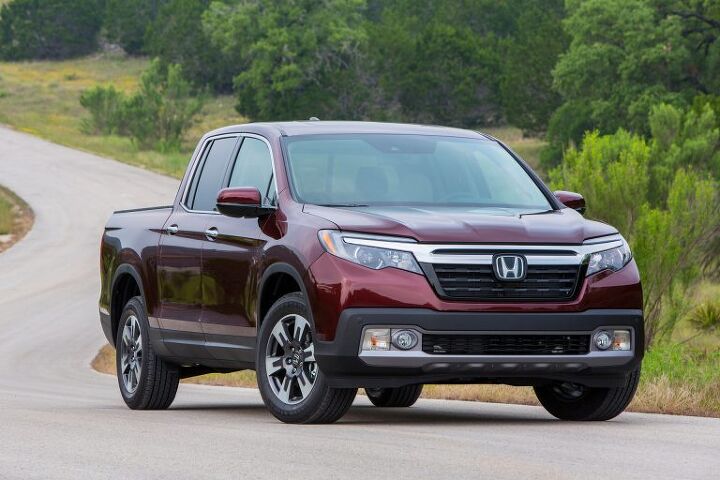
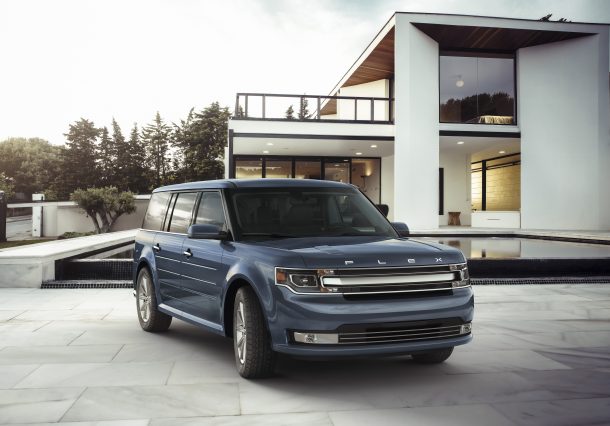




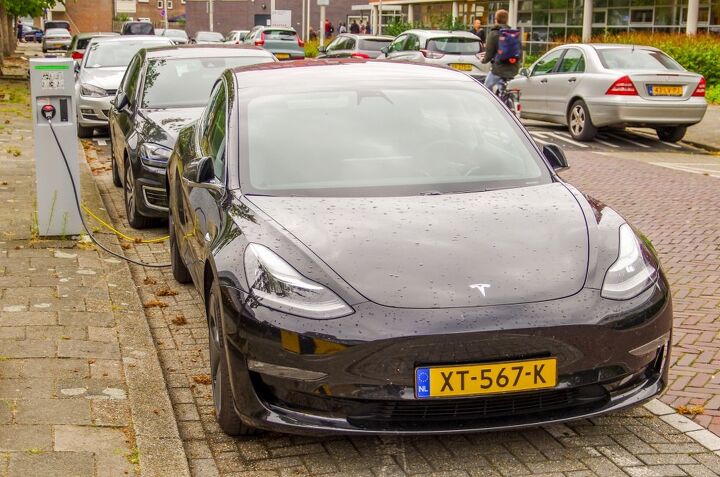
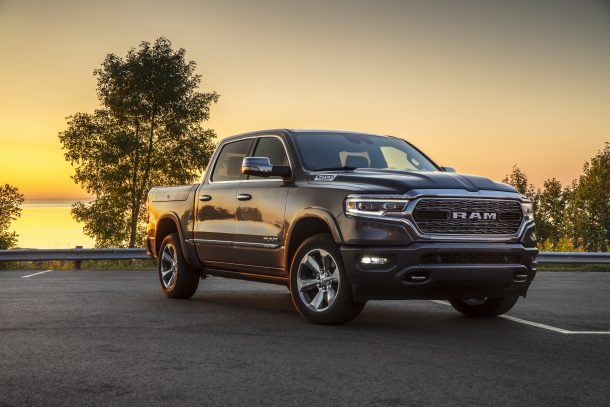

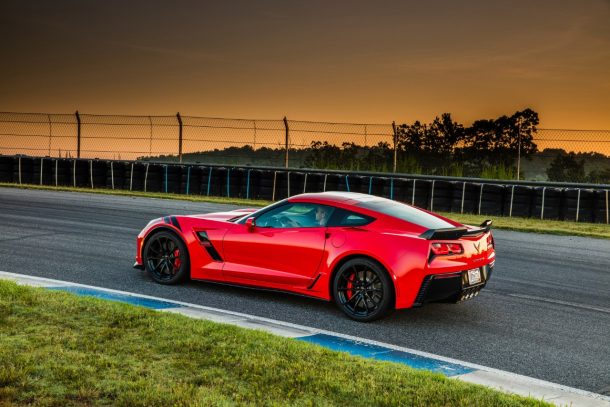
















Recent Comments